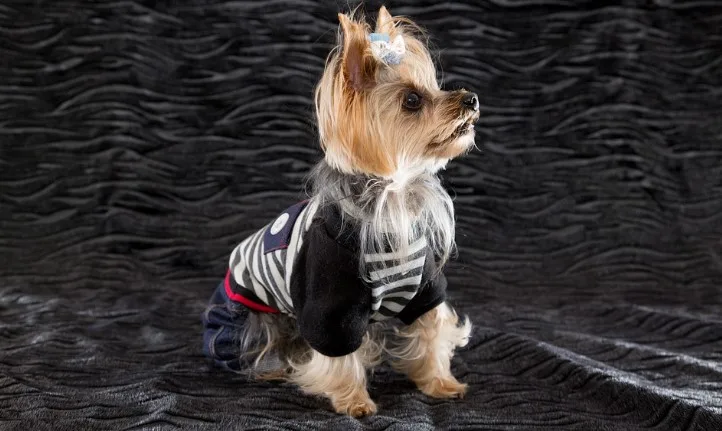Yorkies may be small in size, but they pack a larger-than-life personality! As a popular toy dog breed in the United States, Yorkshire Terriers win hearts with their feisty yet affectionate nature. These tiny dynamos are intelligent, bold, and full of quirks—making them endlessly entertaining companions.

Like all purebred dogs, Yorkies have a distinct temperament shaped by their history as ratters and lapdogs. Understanding their unique traits will help you build a stronger bond and provide the best care for your pint-sized pal.
General Temperament of a Yorkshire Terrier
The Yorkie is a fascinating mix of contradictions:
✔ Intelligent & Trainable – Quick learners who excel in obedience and tricks (though housebreaking can be stubborn).
✔ Feisty & Courageous – Fearless despite their size, often unaware they’re not a giant breed!
✔ Affectionate & Loyal – Thrives on companionship and loves being the center of attention.
✔ Independent & Bossy – May try to rule the household if not given clear leadership.
Special Considerations:
- Cold Sensitivity – Their fine, human-like hair offers little insulation. A sweater or jacket is a must in chilly weather.
- Prone to “Small Dog Syndrome” – Without boundaries, Yorkies can develop demanding or yappy behaviors.

Shaping Your Yorkie’s Behavior
While genetics influence temperament, early training and socialization play a huge role in molding a well-adjusted Yorkie.
1. Start Early (But It’s Never Too Late!)
- The first 3 months are critical for socialization.
- Adult Yorkies can still learn new habits, but it requires patience and consistency.
2. Set Clear Boundaries
- Yorkies test limits! Establish rules from day one to prevent:
- Excessive barking (a common Yorkie trait).
- Separation anxiety (they hate being alone for long).
- Resource guarding (food, toys, or even their favorite person).
- Use positive reinforcement (treats, praise) for good behavior—never harsh punishment.
3. Prioritize Socialization
A well-socialized Yorkie is:
✅ Confident around strangers, dogs, and new environments.
✅ Less likely to develop fear-based aggression or anxiety.
How to Socialize Your Yorkie:
- Puppies: Introduce them to different people, sounds, and surfaces (grass, tile, stairs).
- Adults: Go slow! Use high-value treats to create positive associations with new experiences.
- Grooming Tolerance: Handle paws, ears, and teeth early to avoid battles over nail trims.
4. Crate Training: Playpen Over Crate?
- Yorkies often resist crates due to their independent nature.
- A playpen with toys and bedding may be a better alternative for house training.
- If using a crate, ensure it’s cozy and never used for punishment.
5. Routine = Security
Yorkies flourish with predictability. A daily schedule should include:
⏰ Set meal times (2-3 small meals to prevent hypoglycemia).
🚶 Short walks & play sessions (they have energy to burn!).
💤 Quiet time (Yorkies are prone to overstimulation).
🧼 Grooming breaks (prevent mats in their silky coat).

Final Thoughts
A well-raised Yorkie is a joyful, loyal, and well-mannered companion. Their big personalities demand an owner who provides structure, love, and mental stimulation.
Struggling with training? Consider:
- Obedience classes (great for socialization!).
- Professional trainers (especially for rescue Yorkies with past trauma).
With the right approach, your Yorkie will shine as the bold, clever, and loving little dog they were born to be!


Cathy Bendzunas
Dog Blogger, Former Dog Groomer
I have adored Yorkies for well over 50 years. As a young adult, I began to show and breed them. Now, I just write about them and have several in my little pack of small dogs.
I have had dogs all my life and have trained as a dog groomer. I also have been a kennel worker, worked in a pet hotel through PetSmart, and still am a pet sitter.
Check out my bio for more information about me.
PIN FOR LATER:

